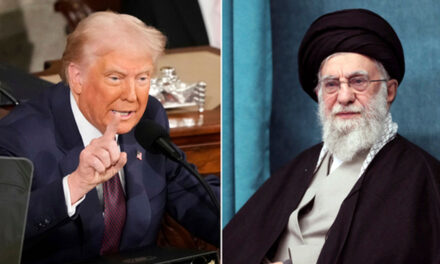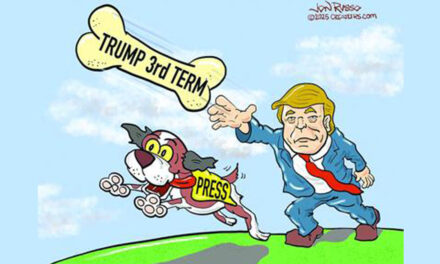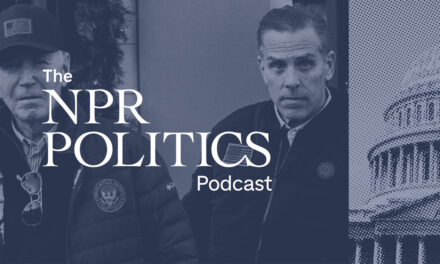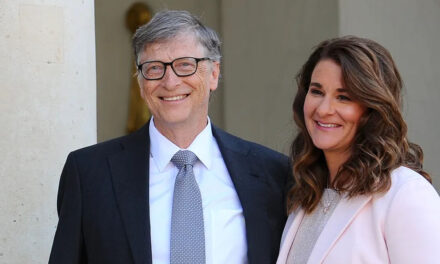
Are Britain’s New Conservatives Anything Like Their American Counterparts?
America and the United Kingdom enjoy a special relationship, an unbreakable bond based on common values and interests. Does that mean British and American Conservatives are philosophically aligned too?
In its overwhelming defeat of the Labor Party in Britain’s historic parliamentary elections, the U.K.’s Conservative Party blazed a trail very similar to the path President Donald Trump took in his upset victory of Hillary Clinton. But the only real similarity is how the “Tories,” as British Conservatives are known, tapped into the same angst many Trump supporters feel about how globalization has threatened the economy and social fabric of their country.
In the U.K., all those concerns are wrapped up in one big package — Brexit. Conservative voters feel that immigration quotas and cumbersome trade regulations enforced by the European Union are robbing the British people of self-determination. In the U.S., massive trade unbalances with China and out-of-control, illegal immigration resonated in Trump’s “America First” message.
But in practical terms, the similarities between Tories and Republicans pretty much end there. The truth is that, in many ways, the Tories are more aligned with American Democrats and the U.K.’s left-leaning Labor Party. This is largely because, in political terms, Brits broadly settled divisive issues such as gun control and abortion decades ago.
Conservative voters in both countries are getting older, whiter, more working class, more socially and culturally conservative and with fewer college graduates than before. Yet Britain’s Conservative Party lacks a powerful, Christian Conservative movement like the GOP has. Absent that pull from the right, the Tories were responsible for bringing same-sex marriage to the U.K. and fully support abortion. They also staunchly oppose the death penalty. Whereas the GOP would never abolish the right to bear arms, Tories would never allow the right to bear arms.
That’s not to say that the Tories, the most successful democratically elected Conservative Party of this era, have changed their beliefs on social issues. They’ve just decided to govern the country that elected them rather than trying to remake it in its image.
Frazier Riley, a senior researcher for the U.K.’s Conservative Party, explained that the Conservative Party realized after its defeat in 2005 that to win elections, it had to become more tolerant of changing attitudes in British society. To that end, party leaders ultimately decided that they could be pragmatic about social change without abandoning core conservative principles.
“The Conservatives wisely chose not to pick a culture war with its electorate,” he wrote. “Public opinion can be moved on many issues, but there are times when it is electorally counter-productive to try. It is a case of adapt or die, and the Republicans are refusing to adapt.”
Riley holds up Labor Party leader Jeremy Corbyn as the most recent example of a failure to accommodate. “He made the same mistake, as public opinion on the economy and defense showed no sign of moving towards him. The Republicans’ strategy of fighting until the last man, on the other hand, is doomed to fail and has put them further out of reach as a reliable and compatible ally,” he writes.
Where GOP compatibility with British Conservatives is the highest in the principles of a strong defense, small government, fiscal conservatism and the doctrine of self-reliance. British conservatives also favor low taxation and low government regulation — on paper, at least. But even those commonalities have uncommon foundations and are waning fast with Tories.
The mainstream of the British Conservative party supports a model in which healthcare and other social services are entirely funded by taxation and free at the point of service. Even if they inveigh against “dependency culture” and bemoan government bureaucracy, Tories will tax and spend to fulfill campaign promises that American Conservatives never would.
The prime example is healthcare.
The U.K.’s National Health System (NHS) is a source of pride for many Brits. According to a recent survey by Gallup, 73 percent of Brits are satisfied with the availability and quality of healthcare where they live. But that percentage is far lower than it was less than a decade ago. In recent years, the NHS has felt the pinch of shrinking funding. Fewer doctors and nurses are available to care for the U.K.’s aging population, and the current pool is overworked.
While private healthcare can be bought in the U.K., the Tories’ worst nightmare is a U.S.-style healthcare system. During the election, a major flap arose over rumors that the Tories would consider letting U.S. healthcare companies enter the U.K. market as part of a post-Brexit trade deal. The real debate between the political parties is how much more money the government will inject into the NHS annually, and how it will be spent.
Another major difference between Tories and the GOP is attitudes toward climate change. In fact, on the issue of global warming and the environment, it could be said that the U.K.’s Conservative Party is greener than the Labor Party. While in power, the Tories have created a wealth of cheap offshore wind energy and in June, they set a world-leading goal of cutting emissions to virtually zero by 2050.
What most binds the Tories and GOP is immigration. Leaders from both countries want to crack down on illegal immigration and limit the number of low-skilled workers that can enter the country. But for both, it has been an albatross.
U.K. Conservatives plan to introduce a points-based system like Australia’s, which awards applicants points under specific criteria including age, skilled employment and language skills. Applicants would need a minimum of sixty points to be granted a visa without an existing job offer. However, Prime Minister Boris Johnson has indicated that the Tory’s plan might require applicants to obtain a job offer before they arrive in the U.K.
Prior to the election of President Trump, Conservatives in both countries had mostly aligned on other major issues in foreign policy. Britain has cherished its long-standing role as a transatlantic bridge. Since its decline as a truly global power, serving as an intermediary on behalf of the U.S. in Europe has been one way by which London has maintained relevance in international affairs.
Britain was staunchly opposed to the U.S. exiting both the Paris Climate Accord and the Iran nuclear deal, two of President Trump’s signature foreign policy actions. However, President Trump’s desire to lessen America’s global commitments and focus more on domestic growth could be reflected in the new Tory government’s policy.
The Brexit vote and ensuing Conservative victory seem to indicate that economic pressures are more important to most Brits than playing wingman to the U.S. in global affairs. Still, the U.K. will need America more than ever post-Brexit to grow its economy and influence global affairs that serve its interest.
Political trends often begin the U.S. and then take hold in the U.K. This election really was a recasting of British politics and society around the same type of economic nationalism President Trump brought to the U.S. With the 2020 presidential election looming, some wonder if the U.K.’s brand of conservatism might blow West. Many prominent Tories hope so.
Among them is Lord Michael Ashcroft, the British billionaire and former deputy leader of the Tories, who is renowned worldwide for his pre-election polling skills. Speaking in Washington at a recent meeting of the International Democratic Union, the global alliance of Conservatives, Ashcroft said that Republicans can win in 2020 by emphasizing these social divides — but only for a time, and at the cost of undermining support for the values and institutions which conservatives should be looking to preserve.
“It has become a cliché to talk about the polarization of American politics, but the problem is that for some time, rather than trying to ameliorate those divisions, politics has emphasized and supercharged them,” he said. “People often blame Donald Trump for this. But the truth is that, like Brexit in the U.K., he is the latest in a long line of divisive political developments going back at least to the Clinton era.”
Ashcroft pointed to the most successful Conservative leaders of this era have been the ones that were not driven by divisions and confined to their own corner of the demographic map. They built the biggest and most enduring coalitions of voters by putting their principles to work for the benefit of people in all parts of society.
“If that sounds a bit soft and fluffy, let me say that the two leaders I have in mind are Ronald Reagan and Margaret Thatcher, “ Ashcroft said. “They were people of undoubted conservative conviction who kept pace with social and cultural change without alienating their core supporters, and who showed people who had never before voted for their parties that there was something in it for them.”

























So- the British “Conservative” Party is conservative in name only. Really don’t appreciate the fault finding by people who have abandoned their God given rights. The advice to go along to get along, while abandoning the right to life, and the right to bear arms, is acknowledged, but not accepted. The deplorable current condition of the UK is multiple volumes of cautionary tales. The political divisions mentioned, rather than reaching back to the “Clinton Era”, reach back more further, to something commonly referred to as The Revolutionary War. Shame on those who would forfeit our rights so that conflict be averted.
Right you are, Bunky! And ‘right’ the UK Tories are NOT!
That fellow who said they had ‘adapted’ on ‘culture war’ issues would have been more accurate to say they betrayed traditional values, and millions of decent people were told that the gaystapo agenda was now a ‘British Value,’ including school indoctrination of even the youngest children.
Interestingly, the resistance to brainwashing has been led by Muslims more than Christians, the Church of England these days as rotten as the BBC. https://rossrightangle.wordpress.com/2019/10/16/birmingham-brain-wash-another-judges-v-people-confrontation/